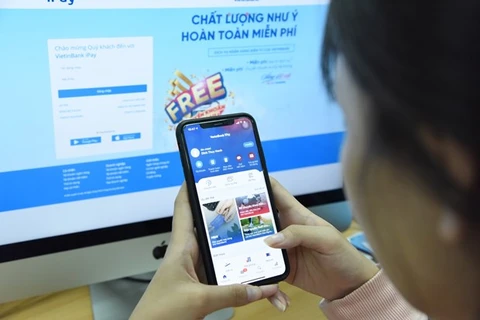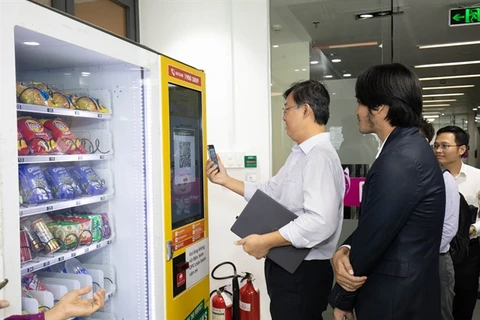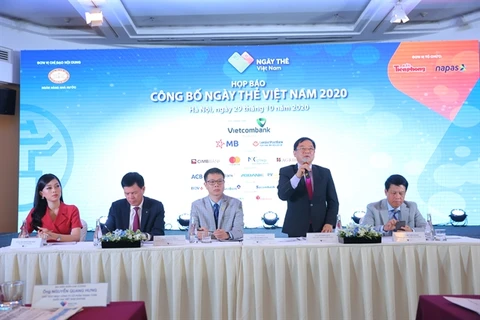Hanoi (VNA) - Over the past years, the Vietnamese Government has kept promoting non-cash payment with domestic or international credit cards and debit cards such as Mastercard, and launched e-wallet models.
Vietnam is expected to have a faster transition to non-cash payment in the coming years with a close handshake between the Government and relevant financial organisations and institutions.
Amid profound changes to and uncertain socio-economic developments in the world, the development of an efficient and convenient digital economy to reduce direct interaction and cumbersome procedures is increasingly becoming urgent.
Vietnam has been stepping up the digitalisation of its economy, especially in financial-monetary field. The Government is also building a policy corridor and partnership with parties concerned to strengthen a sustainable foundation for digital economy.
Cashless payment - Backbone of a digital economy
According to the World Bank's 2019 report “The Digital Economy in Southeast Asia: Strengthening the Foundations for Future Growth”, six important pillars of a digital economy include connectivity, payment, skills, logistics, regulations and policy.
Of which, payment using digital technology is considered a driving force and an inevitable consequence of the fourth industrial revolution.
A World Bank representative in Vietnam said Vietnam is seeing an unprecedented opportunity to take advantage of non-cash payment to promote trade, production and consumption. Just within the past year, many consumers in Hanoi actively switched to non-cash payment. Hundreds of thousands of business households nationwide also joined a network of big financial-technological companies to seek opportunities in a growing digital market.
The WB said though almost Vietnamese people are familiar with cashless payment, almost transactions in the market are based on cash. Non-cash payment is mostly in major cities and statistics in 2019 showed that about 41 percent of the Vietnamese adults have banking accounts.
Cash has a very active history in Vietnam, so that it is uneasy to change consumption habits among the public. However, it is also one of the challenges in non-cash payment. It is necessary to forge a strong cooperation among the Government, private sector and non-governmental organisations to improve access to and use of official financial services, thus bringing about comprehensive growth and empowerment for everyone
Vietnam Card Day - Cashless shopping experience
Thanks to in-depth knowledge of markets worldwide, Mastercard said Vietnam will see a faster switch to non-cash payment in the coming years, especially via collaboration between the public and private sectors. It also lays a foundation to launch initiatives such as Vietnam Card Day 2020 with a series of events from November 7-8 and November 9-15.
Vietnam Card Day 2020 was commissioned by the National Payment Corporation of Vietnam (NAPAS) under the direction of the State Bank of Vietnam and the auspices of strategic partners such as Mastercard, bringing the “Song Festival” to Bach Khoa stadium in Hanoi and super promotion week Mega Sales across the country.
 Students line up for shopping at Mastercard stall during Vietnam Card Day (Photo: Contributor/VietnamPlus)
Students line up for shopping at Mastercard stall during Vietnam Card Day (Photo: Contributor/VietnamPlus) In particular, partners also offered consultation, giving users an access to modern and convenient payment services, thus gradually forming the habit of non-cash payment and card payment in particular.
The event was one of the launch pads to change payment habit among young people, thus shaping a simple and easy-to-access payment ecological system, towards building a comprehensive digital economy.
With high Internet penetration and smart phone subscription, a non-cash ecological system is gradually being shaped in Vietnam.
Young visitors to the event had a chance to experience meaningful activities and receive souvenirs, The luckiest ones received an exclusive collection of UEFA Champions League stickers and Mastercards worth 4.6 million VND (200 USD) each./.
























